CURRENT RESEARCH PROGRAM
IMPROVING LEARNING OPPORTUNITIES
The questions we will never stop asking ourselves:
Now the team at Community Mobilization for Regenerative Agriculture (C-MRA), who delivered the pilot, are collaborating with David Yisrael Epstein Halevi on research to provide further evidence of the scope of the changes taking place in the community of Asumbi resulting from their participation in the permEzone program. This research collaboration will also give insight into how to continue developing and improving the program for future projects.
- How do we know what impact we’re having?
- How can we keep learning and improving our process?
Now the team at Community Mobilization for Regenerative Agriculture (C-MRA), who delivered the pilot, are collaborating with David Yisrael Epstein Halevi on research to provide further evidence of the scope of the changes taking place in the community of Asumbi resulting from their participation in the permEzone program. This research collaboration will also give insight into how to continue developing and improving the program for future projects.
| David is a valued member of our MEL team (Monitoring, Evaluation and Learning), and both the academic coordinator at The Systems Center at The State University of New York (The University at Albany), as well as a researcher for Professor Aaron Benavot where he works on projects related to climate policy and climate change. David is completing his PhD in Educational Policy and Leadership with a focus on eco-pedagogy. This research with the farmers in Asumbi will feed directly into his doctoral thesis. |
permEzone’s educational focus is to help the farmers recognize the resources that they already have at their disposal, including their own intelligence and the accumulated wisdom of their ancestors, alongside practical tools for applied systems thinking, locally appropriate agroecological farming methods, and support for action to meet the nutritional needs of their families and neighbors, while encouraging the development of community structures that help develop the local economy. The resultant changes in farm management bring significant ecological benefits - hence the fit with David’s interest in eco-pedagogy.
The importance of re-learning the value of local, place-based expertise cannot be overstated - the IPCC has stated that we have ZERO chance of reaching the goal of avoiding an increase in CO2 of over 1.5 C unless we fully engage indigenous people and take on board the knowledge and tools that they’ve built up over thousands of years for climate resilience.
The importance of re-learning the value of local, place-based expertise cannot be overstated - the IPCC has stated that we have ZERO chance of reaching the goal of avoiding an increase in CO2 of over 1.5 C unless we fully engage indigenous people and take on board the knowledge and tools that they’ve built up over thousands of years for climate resilience.
Doctoral Research
- Legitimizing our Findings and Advancing our Agenda
The first 2-year permEzone pilot in Kenya came to a successful conclusion earlier this year, but there is still so much to learn by recording and analyzing data about the process and outcomes. David has secured funding and has mapped out a plan to conduct research that will give further legitimacy and valuable insight while exploring and co-creating research tools and methods with local farmers that will enrich the program for Phase 3 farmers in Kisa West, Kenya and all future permEzone beneficiaries.
Building the Next Generation of Leaders
permEzone’s ultimate goal is to instill ownership of the program and its values of eco-social resilience, and to ensure that it continues to build over time with more and more farmers becoming the next generation of trainers, in turn training their friends and neighbors and on and on. In order to empower and support them to do this extension work, a multi-session leadership training workshop will be co-designed and conducted by David and the implementing team at C-MRA.
An initial assessment of the participating farmers, collecting survey data and conducting in-depth focus group conversations, will involve the field managers and lead farmers who participated in the first permEzone pilot, as well as a comparative group of farmers - the team at LEDI (Leap Empowerment and Development Initiative) are also focused on training for sustainable and climate smart agriculture in S. Kenya, and they will be fully involved in co-developing and implementing this research program to include an equivalent group of farmers from their program. This will also be an opportunity to explore options for further collaboration between our two organizations.
The story that emerges from this data will form the basis for co-designing the workshop series for the farmers, ensuring that it will fit their needs and circumstances. The intent of the workshop process will be to foster an open and trusting environment where observations and questions can be safely shared and explored in order to dig deeply into problems and systems of thinking. Topics of the sessions will be designed to serve the specific needs of the group, but may include ideas such as:
The discussions and workshops will be conducted in local languages, with interpretation as necessary. Given the current situation with COVID-19, David’s participation in the workshops will be through online links.
An initial assessment of the participating farmers, collecting survey data and conducting in-depth focus group conversations, will involve the field managers and lead farmers who participated in the first permEzone pilot, as well as a comparative group of farmers - the team at LEDI (Leap Empowerment and Development Initiative) are also focused on training for sustainable and climate smart agriculture in S. Kenya, and they will be fully involved in co-developing and implementing this research program to include an equivalent group of farmers from their program. This will also be an opportunity to explore options for further collaboration between our two organizations.
The story that emerges from this data will form the basis for co-designing the workshop series for the farmers, ensuring that it will fit their needs and circumstances. The intent of the workshop process will be to foster an open and trusting environment where observations and questions can be safely shared and explored in order to dig deeply into problems and systems of thinking. Topics of the sessions will be designed to serve the specific needs of the group, but may include ideas such as:
- Using Data Analytics to Better Identify Root Problems,
- Technical Tools for Team Building Around Problem Identification, and
- Elevating Voices: Bringing Equity to the Decision-Making Process.
The discussions and workshops will be conducted in local languages, with interpretation as necessary. Given the current situation with COVID-19, David’s participation in the workshops will be through online links.
Feedback Loops: Reflecting and Refining the Research
In order to chart the most impactful path forward using solid research as its guide, the team will be checking in with each other continuously to analyze the data together and determine the best path the research should take. They will ask- what is important? What is missing? What other ideas should be pursued and why? What isn’t working, and why? They will be looking for variation within the system, where they are seeing successes or failures that stand out, and what might those environments or the people in them teach us about the system that we can learn from?
Photovoice: Capturing the Whole Story
A picture tells a thousand words, and photos taken over time can really capture the full story. It became clear early in Phase 1 in Asumbi that having more photo-documentation of the farmers and their land and progress would be a great asset. Photos are a great way to record data, and at the same time weave a narrative - showing the methods the farmers are implementing, and highlighting the variety of ways in which different farmers are innovating as they implement and revise according to their understandings. Photos and videos are a powerful way to share stories from the farms to people around the world that can support farmers in their quest to create a more natural, more resilient and more locally beneficial and profitable way to manage their land.
That learning prompted permEzone to budget for two smartphones for Phase 3 participants to use and share. David and the team will train the farmers on how to use the smart phones to collect data via photo, video, and notes, and subsequently to access shared learning resources.
David will also co-lead a workshop on Photovoice, which is a participatory approach to photography, discussion, writing and outreach for community members to investigate their experiences and collaborate for change. This will bring an added richness to the story telling. Photovoice was developed in the early 1990’s as a method to illustrate and amplify the experiences of often unheard communities to raise awareness of their challenges and to bring them to the decision-making table.
That learning prompted permEzone to budget for two smartphones for Phase 3 participants to use and share. David and the team will train the farmers on how to use the smart phones to collect data via photo, video, and notes, and subsequently to access shared learning resources.
David will also co-lead a workshop on Photovoice, which is a participatory approach to photography, discussion, writing and outreach for community members to investigate their experiences and collaborate for change. This will bring an added richness to the story telling. Photovoice was developed in the early 1990’s as a method to illustrate and amplify the experiences of often unheard communities to raise awareness of their challenges and to bring them to the decision-making table.
Solid Foundation for Phase 3
With the support of this doctoral research, permEzone will tap into a new pool of resources which will open up new perspectives in critical thinking and problem solving, bring academic rigor to data collection, and the megaphone of a university-based project.
Preparation, planning and farmer selection is already underway for the third permEzone 2-year program in Kisa West, Kenya.
We are excited to build the capacity of the team and to expand our reach. Please help us raise the funds needed for this important work!
Preparation, planning and farmer selection is already underway for the third permEzone 2-year program in Kisa West, Kenya.
We are excited to build the capacity of the team and to expand our reach. Please help us raise the funds needed for this important work!
Farmers in Kisa West during a recent profiling exercise, and being sensitized for participation in Phase 3
Stay Tuned as Plans Unfold for Phase 3!
Why Contribute?
We provide training and support for impoverished rural communities to learn how to help themselves.
Your contribution will:
We provide training and support for impoverished rural communities to learn how to help themselves.
Your contribution will:
- Help hundreds of families feed themselves with nutritious food
- Help them increase their income from diverse crops, and reduce farm costs
- Help us support them as they work together to find shared solutions to common problems
- Help improve the local environment and take action to reverse climate change
| newsletter_doctoral_research_2020.pdf |

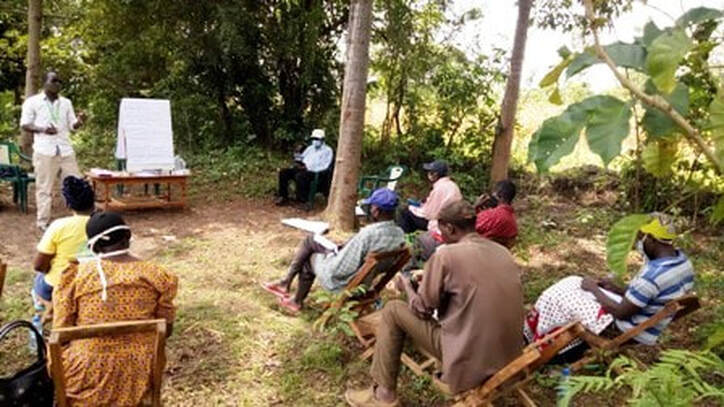

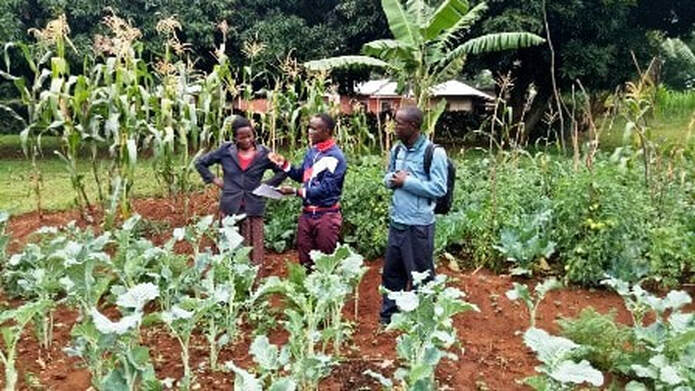
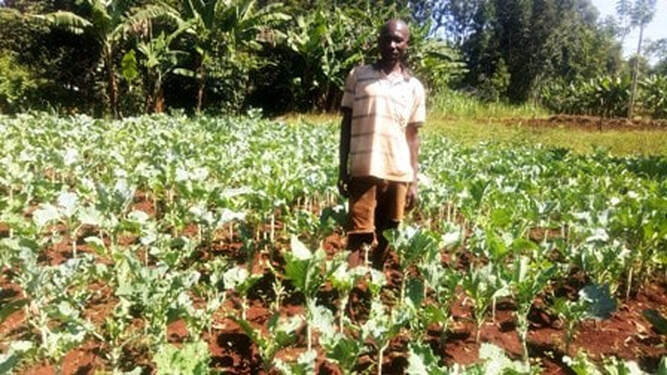
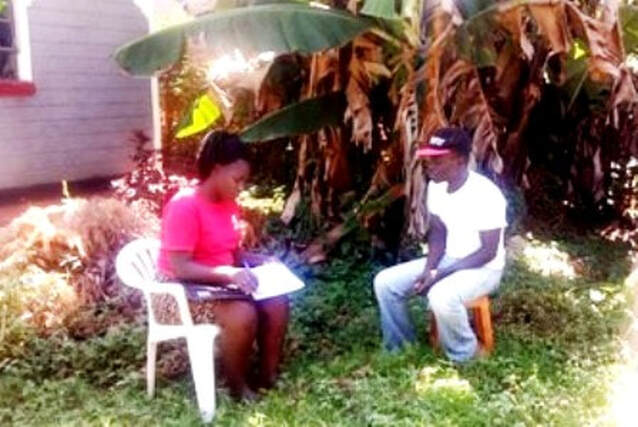
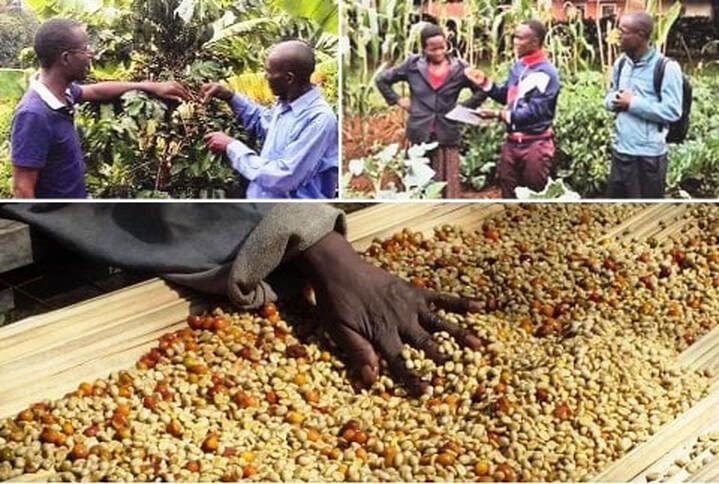
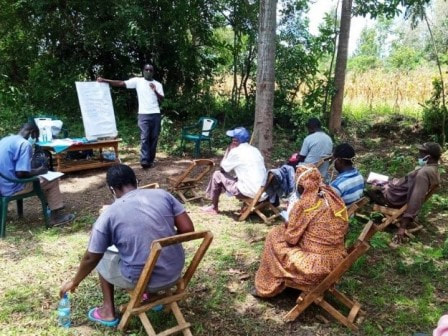
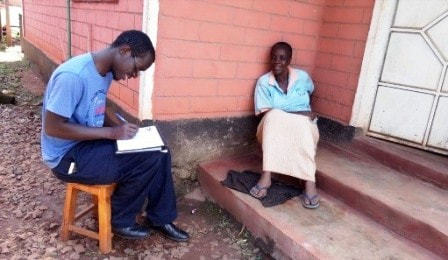


 RSS Feed
RSS Feed